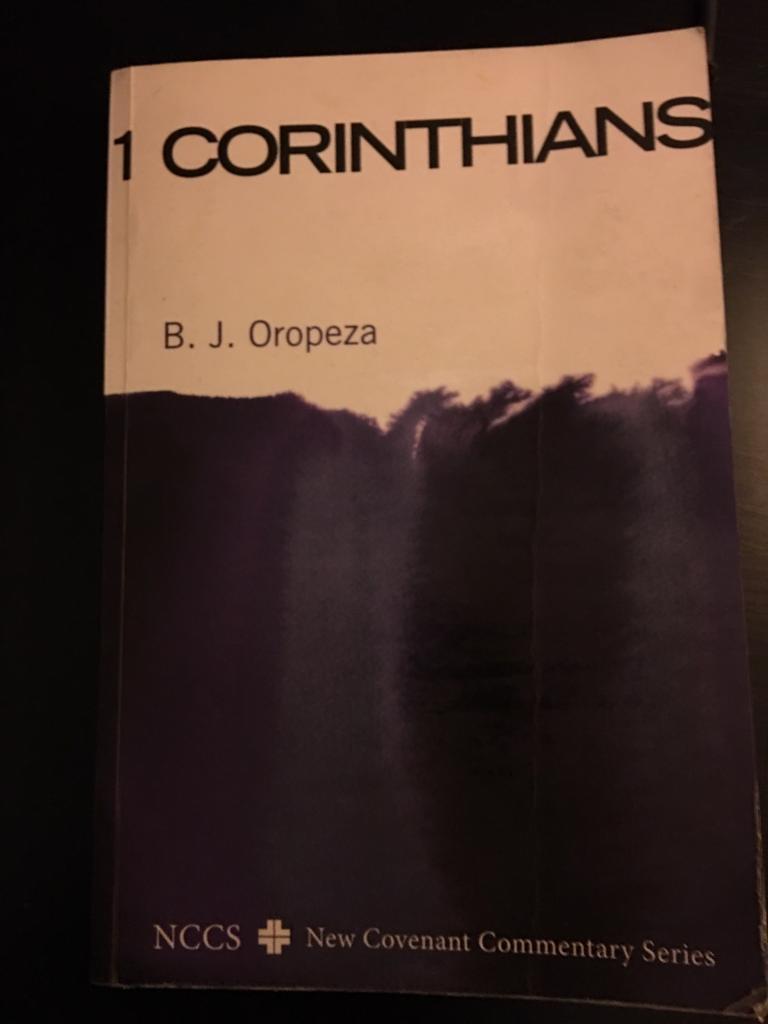We often hear Paul’s second largest letter, 1 Corinthians, read at wedding ceremonies. Its famous “love” chapter, 1 Corinthians 13, is considered one of the most beautiful pieces of poetry regarding love. The letter also famously speaks of the Lord’s Supper, spiritual gifts, and the resurrection of Christ, among many other things. There are also a number of popular misconceptions about this letter. We will cover five of them, beginning with the well-known chapter on love.
-
First Corinthians 13
This passage famously says, “Love is patient, love is kind. It does not envy, it does not boast, it is not proud. It is not rude, it is not self-seeking, it is not easily angered, it keeps no record of wrongs” and so forth (1 Cor 13:4–5 NIV). We might assume that Paul wrote these words about marriage.
On the contrary, Paul wrote these words in 1 Cor 13 as a way to encourage the Corinthians to stop practicing the very vices he mentions. In this letter the Corinthians are envious (1 Cor 3:3), boastful (4:6–7), proud (8:1-2), rude (7:36), self-seeking (10:24, 33; 11:33), and virtually everything love is not!
-
First Corinthians 1:10-13
Paul mentions that there are divisions in the congregation: some say “I am of Paul,” others “I am of Cephas,” others “I am of Apollos,” and others “I am of Christ.” We often hear that the last group, “I am of Christ,” is supposedly maverick Christians who listen to no human leaders—they only listen to the alleged voice of Christ.
Actually, the Apollos group against the Paul group is the main problem. Paul has to insist before the Corinthians that he and Apollos are on the same team (3:4–9, 22; 4:6). He also mentions Peter (Cephas) again in 3:22 and 9:5–6, suggesting perhaps some reality behind this group. But Paul never repeats anything about a Christ group throughout the letter. That group is probably Paul’s own invention, a rhetorical ploy that prompts his response, “Is Christ divided?” (1:13). Elsewhere Paul encourages rather than discourages the notion of belonging to Christ (3:23; 6:15, 20).
-
First Corinthians 3:10-15
This passage speaks of a loss but not of salvation. Some use this text to support eternal security or “once saved, always saved.” Christians who sin egregiously, we are told, might lose their heavenly reward but not their salvation. Never mind that Paul warns in this same letter and elsewhere that those who characteristically commit egregious sins, including Christians, will not inherit God’s kingdom (6:9-10; cf. Galatians 5:19-21).
Actually, 3:10–15 has to do with ministers like Paul and Apollos laboring for the gospel as builders and farmers (3:6–9). Their potential “loss” is that their converts might end up being destroyed on the day of the Lord, when Christ returns, due to those converts’ divisions that ruin the church. The building that burns down is revealed metaphorically as the Corinthian church members (notice 3:9!). They comprise the temple of the Holy Spirit, and if any of them destroy that temple, they themselves will be destroyed at the second coming (3:16-17). So much for eternal security!
-
First Corinthians 5:1–5
A man in the church is committing incest with his stepmother, and Paul says that such a thing is not among the gentiles. But anyone who knows about the ancient world knows that incest was practiced back then, even as it is now. For example, Roman emperors like Caligula and Claudius are rumored to have committed incest. So should Paul be accused of playing loose with the facts?
Actually, the Corinthians probably would fully agree with Paul’s assessment. What is often overlooked is that they grew up with the myth of King Oedipus. Ever hear of the Oedipus complex? Legend has it that Oedipus was raised in Corinth. He later unknowingly marries his own mother, Queen Jacosta. When the couple finds out that they had been committing incest, the mother hangs herself and Oedipus blinds himself with his mother’s brooches. The Corinthians knew first-hand how tragedy entails incest. Such a thing was simply not to be practiced among them, a gentile people.
-
First Corinthians 7:14
Paul brings up the topic of mixed marriages, and in this verse he claims that the unbelieving spouse and their children are “sanctified” by the believing spouse. People often scratch their heads trying to figure out how an unbeliever can be “holy” simply by being married to a believer.
Actually, the problem is that we westerners often fail to understand the ancient household. To be an unbeliever back then did not mean that the spouse had no religious convictions but just sat on a couch drinking beer and watching sports all afternoon. Back then, the unbelieving spouse believed in other gods. This likely meant that he set up idols in the home and prayed to the gods represented by the idols. He also made his children pray to such gods.
The Christian spouse no doubt would be concerned that her spouse and children were contaminated by spirits. Would God even hear her prayers in such an unholy environment? Paul encourages the believing spouse not to worry; the household is sanctified in God’s eyes for the sake of the believer. And God has power over any demons or spirits that the unbelieving spouse might attract.
These and many other insights you can find in my New Covenant Commentary on 1 Corinthians (Cascade Books). We have yet to explore some of the later chapters in 1 Corinthians, so stay tuned!

Image 1: A picture I took of my own book owned by me.













